Key takeaways:
- Ocean conservation is vital for planetary health, impacting climate regulation and community livelihoods.
- Marine reserves restore biodiversity and support sustainable fishing, benefiting local economies and food security.
- Major threats to marine ecosystems include climate change, pollution, and overfishing, necessitating immediate action.
- Community engagement and education are crucial for advocating marine conservation and fostering future ocean stewards.
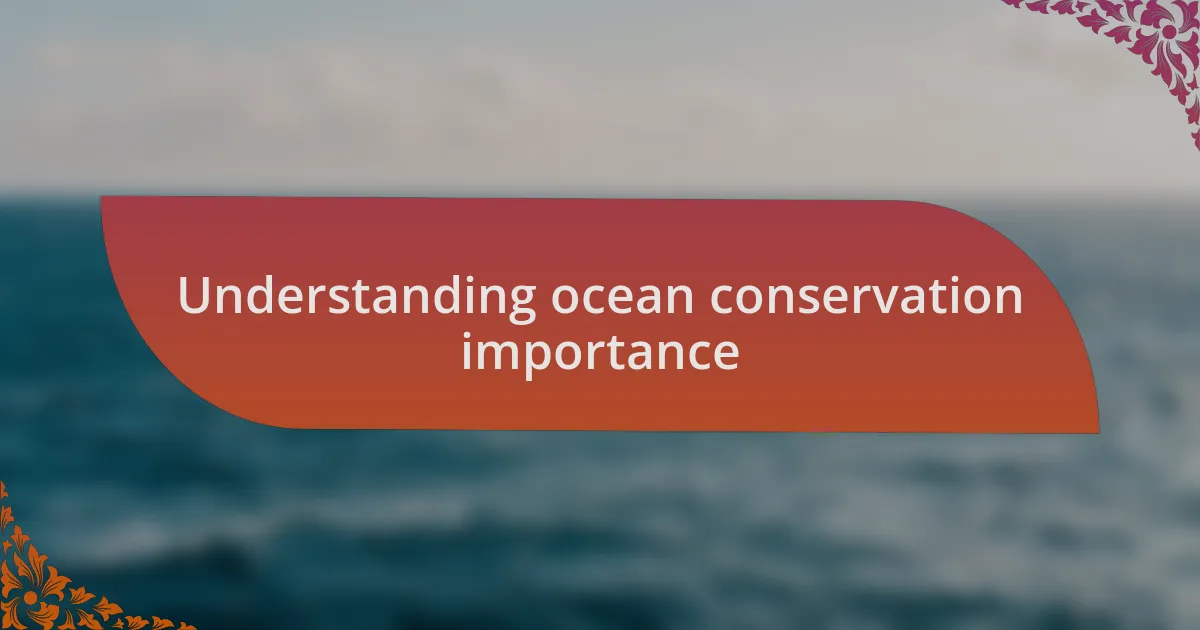
Understanding ocean conservation importance
Understanding the importance of ocean conservation is crucial, as it directly impacts our planet’s health and our own well-being. I remember the first time I saw coral reefs teeming with life during a dive. The vibrant colors and the bustling ecosystem felt like entering another world, and it struck me how fragile that beauty was. What would happen if we lost that richness forever?
The ocean is often referred to as the “lungs of the Earth,” and for good reason. It absorbs a significant amount of carbon dioxide, helping to regulate our climate. Can you imagine a world where this natural balance is disrupted? I often think about how our daily choices, like reducing plastic use or supporting sustainable seafood, directly contribute to protecting these vital waters.
Moreover, oceans provide resources and livelihoods for millions of people worldwide. Reflecting on my travels, I recall a small fishing community that thrived because of a nearby marine reserve, which sustained fish populations. It makes me wonder: how many more communities could flourish if we recognized and acted on the importance of conserving our oceans?
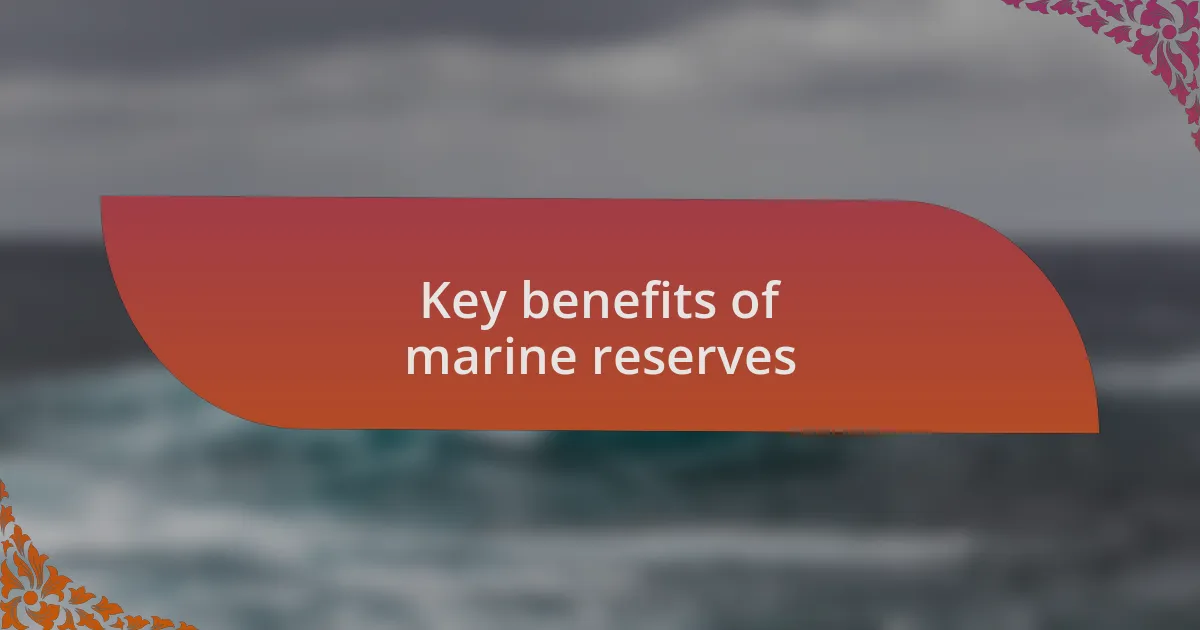
Key benefits of marine reserves
One of the key benefits of marine reserves is the restoration of biodiversity. I had the opportunity to visit a marine protected area where fish species flourished, compared to barren seafloors outside the reserve. Witnessing schools of colorful fish darting around coral structures was uplifting and reinforced my belief in the need for these sanctuaries. Does it make you think about how much more life could thrive if we expanded these protected areas?
Marine reserves play a vital role in replenishing fish stocks, which is essential for maintaining sustainable fishing practices. I vividly remember chatting with a local fisherman who had seen a remarkable increase in his catches since the establishment of a nearby reserve. His excitement was palpable as he shared how it had transformed his community’s economy and food security. If only more regions could experience similar benefits, how different would our oceans look?
In addition to ecological benefits, marine reserves provide valuable opportunities for research and education. I once participated in a coastal cleanup day led by a marine conservation group, where we also learned about the ongoing studies in the reserve. The connection I felt during those interactions made me realize that protecting our oceans is not just about the environment; it’s about inspiring the next generation to care for these vital ecosystems. Wouldn’t it be powerful to think that the steps we take today could shape the future stewards of our oceans?
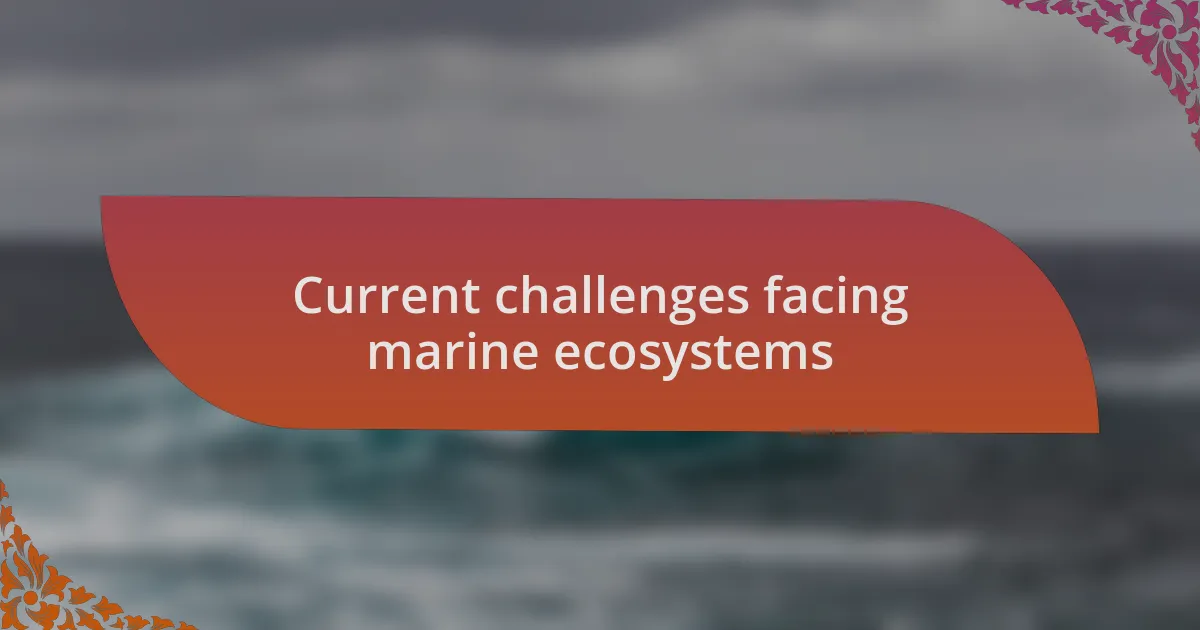
Current challenges facing marine ecosystems
Current challenges facing marine ecosystems are numerous and complex. One significant issue is the impact of climate change, leading to rising sea temperatures and ocean acidification. During a recent dive, I saw firsthand the effects of bleaching on coral reefs—turning vibrant underwater worlds into ghostly landscapes. It left me pondering how long it would take for such vital ecosystems to recover, if they ever could.
Pollution poses another serious threat, with plastic waste and chemicals seeping into oceans daily. I remember a beach cleanup I joined, where we collected bags filled with everything from straws to fishing nets. The stark reality hit hard as I realized that these items not only harm marine life but also disrupt entire food webs. Can we truly call ourselves stewards of the ocean if we continue to allow such degradation?
Overfishing is yet another challenge, leading to the depletion of vital fish species. I often think back to my conversations with marine biologists who share alarming statistics on declining fish populations. It’s clear that what’s happening below the surface directly impacts our culinary choices and local economies. How can we advocate for sustainable practices and protect these ecosystems for future generations?
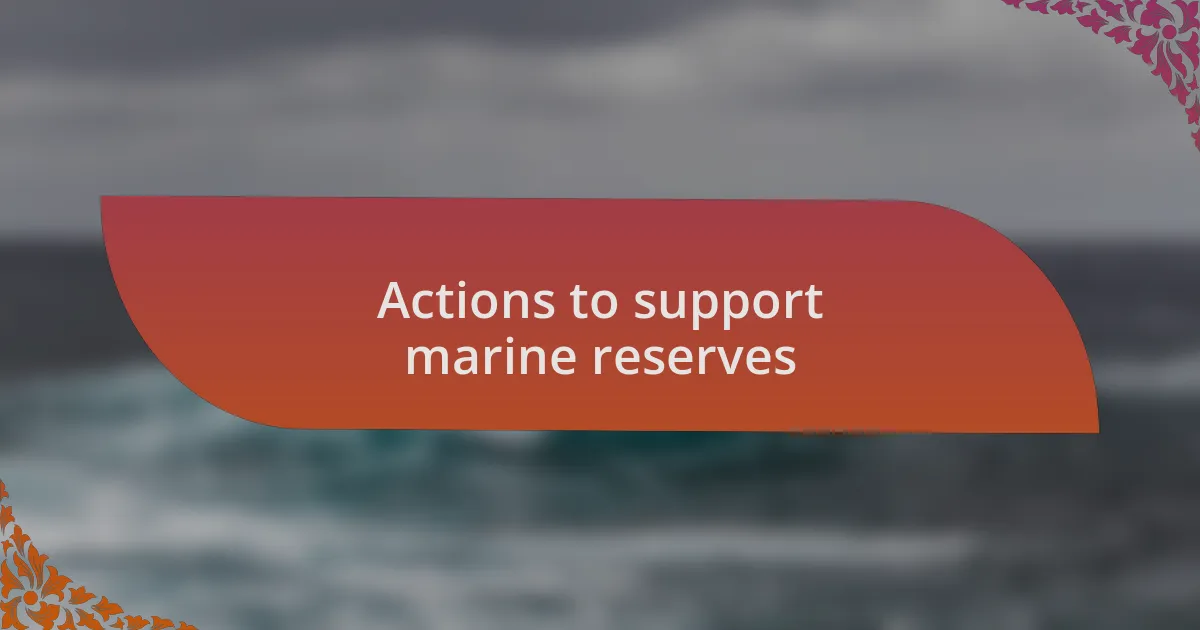
Actions to support marine reserves
Taking action to support marine reserves begins with advocacy and education. I recently facilitated a workshop where community members learned about the importance of these protected areas. The enthusiasm in the room was contagious, underscoring how knowledge can empower individuals to champion ocean conservation efforts within their own communities.
Participating in local initiatives is another effective way to bolster marine reserves. I recall volunteering with a nonprofit organization that organized regular beach cleanups, merging hands-on effort with raising awareness. Seeing families come together, their children picking up trash while discussing marine life, made me realize that community involvement can foster a deeper respect for our oceans. Isn’t it inspiring how small actions can lead to larger ripples of change?
Supporting policies that promote marine conservation is vital. I remember attending a town hall meeting where local leaders discussed potential legislation to expand marine protected areas. Listening to passionate arguments from fellow advocates reminded me that every voice counts. What strategies can you adopt to influence decision-makers and ensure our oceans are safeguarded for future generations?
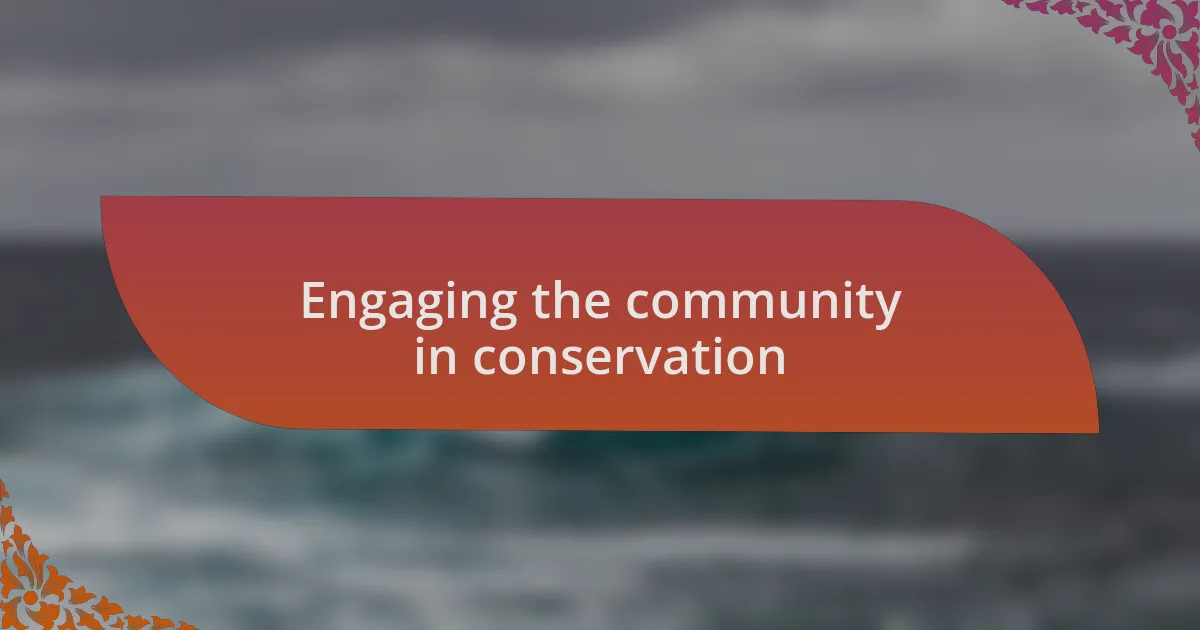
Engaging the community in conservation
Engaging the community is truly the heart of conservation efforts. I vividly remember the day we hosted a community event at the local park, where we laid out marine life displays and interactive booths. The excitement on the faces of children as they learned about different species and their habitats was a reminder of why we fight for these ecosystems. How often do we forget that nurturing curiosity in young minds can spark lifelong advocates for the ocean?
In my experience, storytelling is a powerful tool for engagement. I once shared my journey of diving in a marine reserve during a local gathering, painting a picture of vibrant reefs and diverse marine life. The awe in the audience’s eyes was palpable, and it struck me how personal anecdotes can create an emotional connection to the sea. Isn’t it incredible how a simple story can ignite passion and motivate community members to protect what lies beneath the surface?
Finally, creating partnerships with local businesses can extend our reach significantly. I partnered with a local café that decided to donate a percentage of sales on “Ocean Conservation Day” to support marine reserve initiatives. The excitement generated by this collaboration encouraged patrons to learn more about marine life and conservation. How might your local businesses join hands with the community to elevate awareness and engagement around ocean conservation?